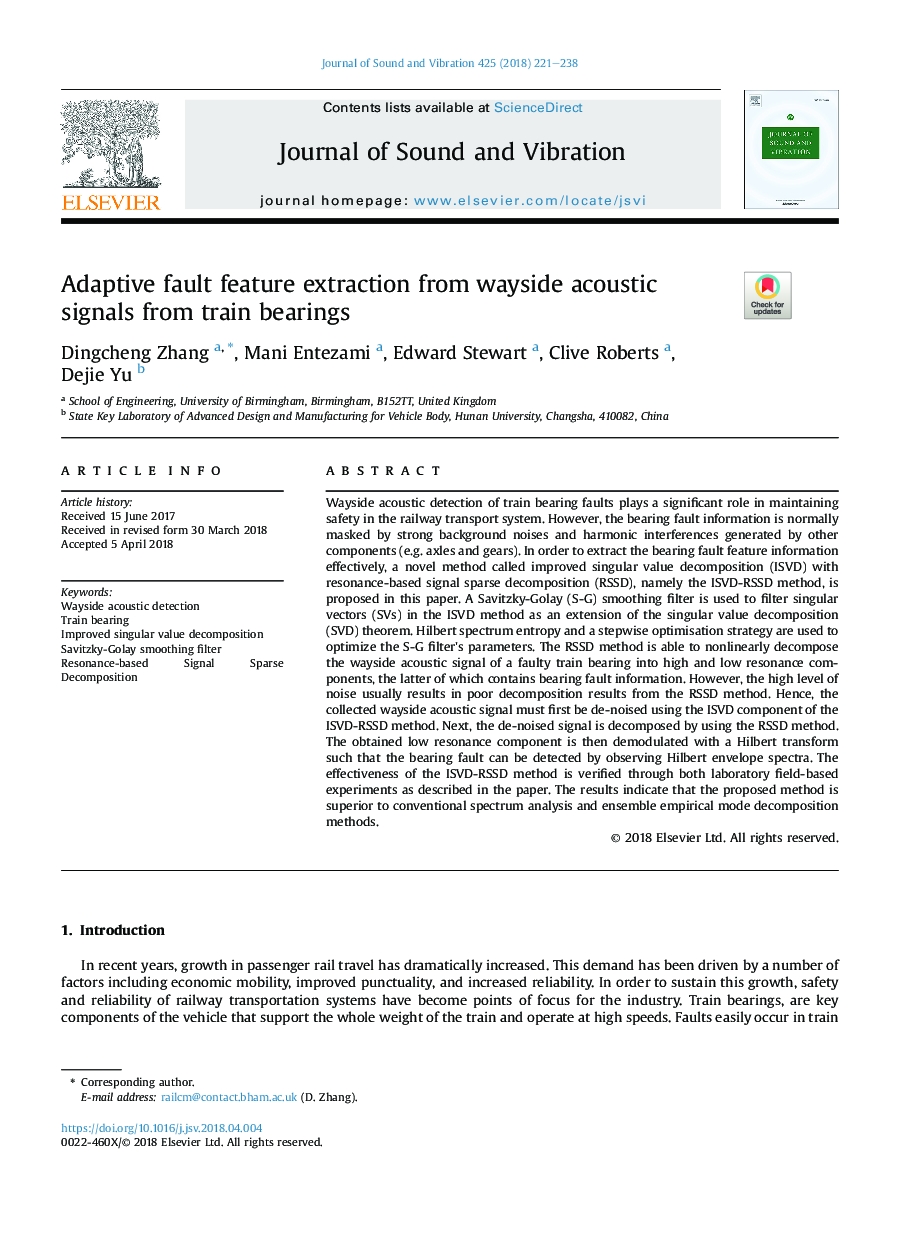| Article ID | Journal | Published Year | Pages | File Type |
|---|---|---|---|---|
| 6753163 | Journal of Sound and Vibration | 2018 | 18 Pages |
Abstract
Wayside acoustic detection of train bearing faults plays a significant role in maintaining safety in the railway transport system. However, the bearing fault information is normally masked by strong background noises and harmonic interferences generated by other components (e.g. axles and gears). In order to extract the bearing fault feature information effectively, a novel method called improved singular value decomposition (ISVD) with resonance-based signal sparse decomposition (RSSD), namely the ISVD-RSSD method, is proposed in this paper. A Savitzky-Golay (S-G) smoothing filter is used to filter singular vectors (SVs) in the ISVD method as an extension of the singular value decomposition (SVD) theorem. Hilbert spectrum entropy and a stepwise optimisation strategy are used to optimize the S-G filter's parameters. The RSSD method is able to nonlinearly decompose the wayside acoustic signal of a faulty train bearing into high and low resonance components, the latter of which contains bearing fault information. However, the high level of noise usually results in poor decomposition results from the RSSD method. Hence, the collected wayside acoustic signal must first be de-noised using the ISVD component of the ISVD-RSSD method. Next, the de-noised signal is decomposed by using the RSSD method. The obtained low resonance component is then demodulated with a Hilbert transform such that the bearing fault can be detected by observing Hilbert envelope spectra. The effectiveness of the ISVD-RSSD method is verified through both laboratory field-based experiments as described in the paper. The results indicate that the proposed method is superior to conventional spectrum analysis and ensemble empirical mode decomposition methods.
Keywords
Related Topics
Physical Sciences and Engineering
Engineering
Civil and Structural Engineering
Authors
Dingcheng Zhang, Mani Entezami, Edward Stewart, Clive Roberts, Dejie Yu,
